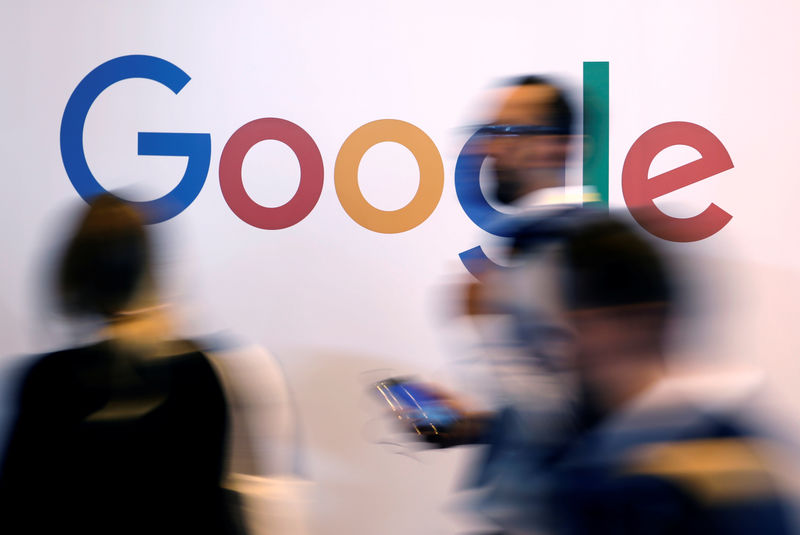Investing
Google settles $5 billion consumer privacy lawsuit

© Reuters. FILE PHOTO: An illuminated Google logo is seen inside an office building in Zurich, Switzerland December 5, 2018. REUTERS/Arnd Wiegmann//File Photo
By Jonathan Stempel
(Reuters) – Alphabet (NASDAQ:)’s Google has agreed to settle a lawsuit claiming it secretly tracked the internet use of millions of people who thought they were doing their browsing privately.
U.S. District Judge Yvonne Gonzalez Rogers (NYSE:) in Oakland, California, put a scheduled Feb. 5, 2024 trial in the proposed class action on hold on Thursday, after lawyers for Google and for consumers said they had reached a preliminary settlement.
The lawsuit had sought at least $5 billion. Settlement terms were not disclosed, but the lawyers said they have agreed to a binding term sheet through mediation, and expected to present a formal settlement for court approval by Feb. 24, 2024.
Neither Google nor lawyers for the plaintiff consumers immediately responded to requests for comment.
The plaintiffs alleged that Google’s analytics, cookies and apps let the Alphabet unit track their activity even when they set Google’s Chrome browser to “Incognito” mode and other browsers to “private” browsing mode.
They said his turned Google into an “unaccountable trove of information” by letting the company learn about their friends, hobbies, favorite foods, shopping habits, and “potentially embarrassing things” they seek out online.
In August, Rogers rejected Google’s bid to dismiss the lawsuit.
She said it was an open question whether Google had made a legally binding promise not to collect users’ data when they browsed in private mode. The judge cited Google’s privacy policy and other statements by the company that suggested limits on what information it might collect.
Filed in 2020, the lawsuit covered “millions” of Google users since June 1, 2016, and sought at least $5,000 in damages per user for violations of federal wire-tapping and California privacy laws.
The case is Brown et al v Google LLC et al, U.S. District Court, Northern District of California, No. 20-03664.
Read the full article here

-

 Side Hustles6 days ago
Side Hustles6 days ago5 Things That Could Significantly Impact Your Company in 2025
-

 Investing6 days ago
Investing6 days agoNFI Group surge after board reshaped with new appointments, chairperson By Investing.com
-

 Side Hustles4 days ago
Side Hustles4 days agoMicrosoft Is About to Begin Job Cuts. Here’s Why.
-

 Make Money3 days ago
Make Money3 days ago10 Critical Questions to Ask Your Financial Advisor Now
-

 Make Money2 days ago
Make Money2 days ago10 Ways to Make Money As a Graphic Designer
-

 Passive Income5 days ago
Passive Income5 days ago3 Challenges Entrepreneurs Will Face in 2025
-

 Side Hustles5 days ago
Side Hustles5 days agoThe Canadian Media Lawsuit That Could Reshape Tech’s Future
-

 Investing4 days ago
Investing4 days agoWhat CMOs Need to Know About AI Adoption in Marketing Teams


















